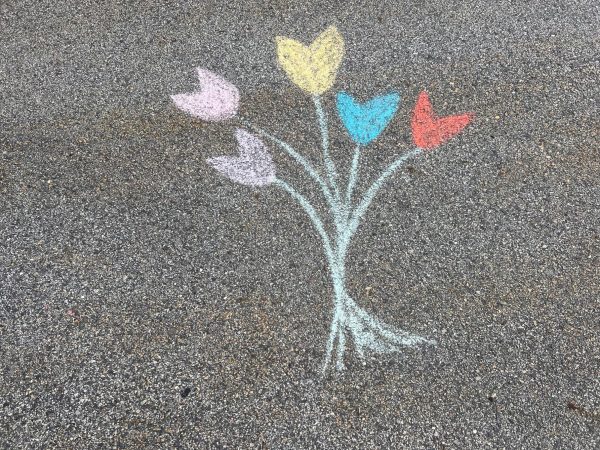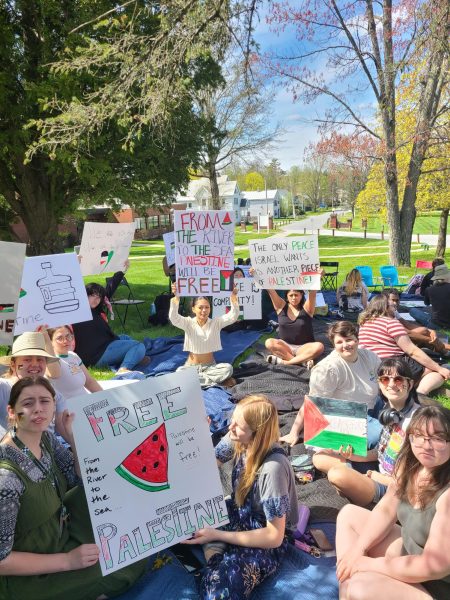Help Ivory Free Vermont save the elephants
Every 15 minutes, an elephant is slaughtered for its tusks, and if we do nothing in 10 years, wild African elephants will be extinct.
That is a message Ashley McAvey, the woman leading the campaign to end elephant ivory and rhinoceros horn sales in Vermont, would like you to take to heart.
The campaign, Ivory Free Vermont (IFV), is seeking for the Vermont legislature to pass bill H.297, which would prohibit: the import, sale, offer for sale, purchase, barter, or possession with intent to sell of any ivory, ivory product, rhinoceros horn, or rhinoceros horn product in Vermont.
Selling ivory and rhino horn or products containing them, has been heavily restricted under federal law for decades, and typically requires they were harvested from animals killed before bans took place. There are tougher federal regulations of the ivory trade expected to be finalized later this year, according to TIME magazine.
It is very easy for poachers and traffickers to sell ivory from freshly butchered elephants on the legal market. In one study conducted in Los Angeles, California, up to 90% of the ivory for sale there in stores or markets is illegal under California law and 60% under federal law, according to the Los Angeles Times. Ivory is often hacked or cut from still living elephants when removed, according to the Huffington Post.
From 2010-12, over 100,000 African elephants were killed by poachers, according to a study published in the Proceedings of the National Academy of Sciences. An article published last year in “The Week” magazine states there is a huge demand for their tusks, worth up to $1,500 a pound, in principally Asia and America. They state one male elephants tusks can together weigh over 250 pounds, so at $1500 a pound one elephant could fetch traffickers over $375,000.
According to IFV, many of the poachers and traffickers reaping the massive profits from the genocide of African elephants are terrorist groups and militias, such as: Al-Shabaab, Janjaweed (involved in the genocide in Darfur, Sudan), Lord’s Resistance Army, and Boko Haram. Boko Haram’s leader reportedly pledged allegiance to the Islamic State of Iraq and the Levant this year, according to CNN.
By making ivory monetarily worthless in Vermont, campaign supporters believe Vermonters could do their part to stop the mass slaughter and race to extinction of the African elephant, as well as various species of rhino. Of the four Northern White Rhinos left in the world, the only male, 42-year-old Sudan, is under 24-hour armed guard to protect him from poachers, according to the Ol Pejeta Conservancy where he lives.
Based on an IFV article written by McAvey, and congressional testimony earlier this year reported on by the Burlington Free Press, the main opposition to the campaign appears to be from antique dealers, musicians, and gun owners. They ultimately argue how could a 50 or 100 year old item containing ivory contribute to current poaching?
IFV believes the ability to sell a 50 year old piece of ivory jewelry or ivory piano keys contribute to current poaching of elephants because they give any ivory expensive monetary value. Supporters of the bill believe without money value ivory would stay with live elephants.
However, if the proposed bill became law as is, it would not prevent anyone currently owning ivory, rhino horn, or products containing them from enjoying or using them and passing it on to a loved one when they die.
The only thing Vermonters who own ivory would lose, according to supporters, is the money value of their ivory. They believe that is worth it to save the elephant and rhinoceros from imminent extinction if nothing is done. Precedent exists, considering New Jersey and New York both passed laws in 2014 identical or similar in effect to the one now being considered in Vermont, according to IFV.
If the elephants of Africa are to be saved, something dramatic would have to happen. National Geographic reported, in only one incident in Bouba Ndjidah National Park, Cameroon, in 2012, over 300 elephants were massacred with rocket-propelled grenades and machine guns by poachers seeking their tusks.
To learn more about the campaign to ban the sale of ivory in Vermont, go to www.ivoryfreevermont.org




